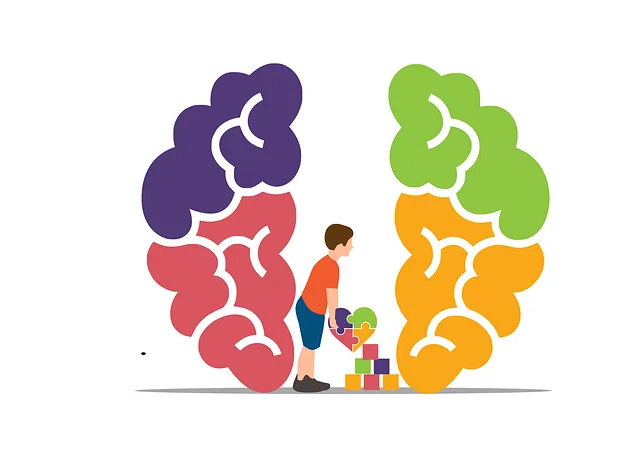Online discussions on Reddit regarding Englewood Kaiser Permanente's mental health services offer valuable insights into community perceptions and interactions with these programs, highlighting both positive aspects and areas for improvement. Users share a mix of praise for accessibility and affordability, as well as critiques calling for diverse therapeutic approaches and tailored support. The Mental Wellness Podcast Series further underscores the community's desire for open conversations around mental health. Evaluating these services involves a combination of quantitative (pre-post assessments, focus groups) and qualitative (interviews) methods to gain comprehensive insights. Stakeholder involvement—including clients, healthcare providers, leaders, and policymakers—is crucial for developing effective interventions, as seen at Englewood Kaiser Permanente's mental health services on Reddit. Success is measured through KPIs like reduced anxiety/depression levels, increased resource access, improved compassion cultivation practices engagement, and enhanced public awareness, with well-designed education programs contributing to stigma reduction and community support.
Mental wellness program evaluations are vital for understanding and improving initiatives like those offered by Englewood Kaiser Permanente. This article explores diverse evaluation methods, leveraging a unique perspective from Reddit discussions about Englewood Kaiser Permanente’s mental health services. We delve into qualitative and quantitative approaches, highlighting their respective strengths, and emphasize stakeholder collaboration as a key to successful program assessments. Additionally, we outline critical performance indicators for gauging the impact of mental wellness initiatives.
- Understanding Englewood Kaiser Permanente Mental Health Services: A Reddit Perspective
- Assessing the Impact: Evaluation Methods for Mental Wellness Programs
- Qualitative vs Quantitative Approaches: Which is More Effective?
- Stakeholder Involvement: The Power of Collaboration in Program Evaluation
- Measuring Success: Key Performance Indicators for Mental Wellness Initiatives
Understanding Englewood Kaiser Permanente Mental Health Services: A Reddit Perspective

Englewood Kaiser Permanente mental health services have gained significant attention and discussions on platforms like Reddit, reflecting a broader interest in understanding community-based healthcare approaches. This online discourse provides unique insights into how individuals perceive and interact with these services. Through self-Awareness Exercises and Mental Wellness Journaling Exercise Guidance shared on Reddit, users offer both praise and critique, highlighting the program’s potential to foster mental wellness but also pointing out areas for improvement. Some users rave about the accessibility and affordability of Englewood Kaiser Permanente’s mental health resources, while others share stories of mixed experiences, emphasizing the importance of tailored support and diverse therapeutic modalities.
The Mental Wellness Podcast Series Production on Reddit further showcases the community’s desire for more transparent conversations around mental health. Users engage in discussions that span from personal growth narratives to critical analyses of systemic challenges within healthcare. This online dialogue not only amplifies the value of mental wellness initiatives but also underscores the power of peer support and shared experiences. By examining these Reddit perspectives, we gain a nuanced understanding of Englewood Kaiser Permanente’s mental health services, recognizing both their strengths and opportunities for further enhancement to better serve the community.
Assessing the Impact: Evaluation Methods for Mental Wellness Programs

Evaluating the impact of mental wellness programs is a multifaceted process that goes beyond simple satisfaction surveys. At Englewood Kaiser Permanente mental health services reddit, professionals employ diverse methods to assess the effectiveness and reach of their initiatives. These include quantitative tools like pre-post assessments tracking changes in symptoms and behavioral metrics, alongside qualitative approaches such as focus groups and interviews that provide deeper insights into participants’ experiences.
By integrating these evaluation techniques, healthcare providers can gain a comprehensive understanding of program outcomes. For instance, combining Self-Awareness Exercises with Cultural Competency Training for mental health professionals ensures that both individual and systemic factors influencing patient well-being are considered. Ultimately, this holistic approach allows for the development and refinement of Mental Wellness Coaching Programs tailored to meet the unique needs of diverse communities.
Qualitative vs Quantitative Approaches: Which is More Effective?

When evaluating mental wellness programs, researchers often grapple with choosing between qualitative and quantitative approaches. Both methods have their merits, but each offers distinct insights into program effectiveness. Qualitative methods, such as interviews and focus groups, provide rich, narrative data that can uncover participants’ lived experiences and perceptions of the program. This approach is particularly valuable for understanding complex emotional nuances, personal growth journeys, and unique challenges faced by individuals engaging with mental health services, as seen in discussions on Reddit about Englewood Kaiser Permanente’s mental health services.
Quantitative methods, on the other hand, rely on numerical data and statistical analysis to assess program outcomes. They can efficiently measure changes in symptoms, overall emotional well-being, and adherence rates. Techniques like surveys and standardized assessments offer a broader perspective by aggregating data from larger samples. For example, communication strategies and emotional intelligence programs designed to enhance emotional well-being promotion techniques can be rigorously evaluated using quantitative methods, allowing for evidence-based decisions on program improvement and replication.
Stakeholder Involvement: The Power of Collaboration in Program Evaluation

Stakeholder involvement is a cornerstone of effective mental wellness program evaluation. Engaging various stakeholders—including clients, healthcare providers, community leaders, and policy makers—brings diverse perspectives to the table, ensuring that evaluations are comprehensive and meaningful. At Englewood Kaiser Permanente, for instance, mental health services on Reddit have benefited from collaborative efforts, leading to more tailored interventions and improved outcomes for patients.
This collective approach enhances program development by integrating real-world insights and feedback. By incorporating experiences from Depression Prevention, Trauma Support Services, and Mental Wellness Coaching Programs Development, evaluations become dynamic and responsive to the evolving needs of individuals seeking mental health support. Such collaboration not only strengthens service delivery but also fosters a sense of community ownership and accountability, ultimately contributing to more successful and sustainable mental wellness initiatives.
Measuring Success: Key Performance Indicators for Mental Wellness Initiatives

Measuring success is a critical component of evaluating any mental wellness program. Key Performance Indicators (KPIs) provide a structured framework to assess the impact and effectiveness of initiatives aimed at improving mental health. For organizations like Englewood Kaiser Permanente, tracking relevant KPIs can help tailor services to meet community needs, as evidenced by feedback from platforms like Reddit, where individuals share their experiences with various mental health resources.
Relevant metrics might include reduction in anxiety and depression levels among participants, increased access to mental wellness resources, improved employee engagement in Compassion Cultivation Practices, and enhanced public awareness about mental health issues through well-designed Mental Health Education Programs. Additionally, the development of impactful Public Awareness Campaigns can lead to greater community support and reduced stigma associated with seeking mental health services.
Evaluating mental wellness programs is a multifaceted process, as demonstrated by the various methods explored in this article. From understanding user perspectives on Englewood Kaiser Permanente’s mental health services through Reddit discussions to assessing impact and measuring success, each approach offers valuable insights. Qualitative and quantitative methods complement each other, with stakeholder involvement acting as a powerful catalyst for effective program evaluation. By employing these strategies, mental wellness initiatives can be refined and optimized to better serve their communities, ensuring positive outcomes and improved mental health support.






